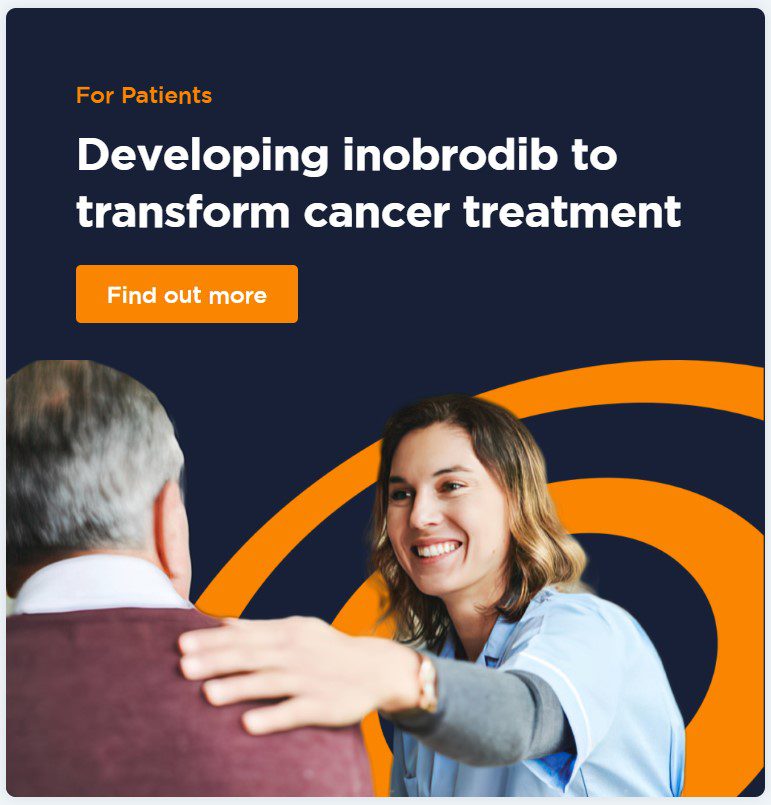Award success for Institute postdoctoral researcher
Dr Luciano Nicosia, who is part of our Leukaemia Biology Group, has been awarded a 3-year Early Career Advancement Fellowship with Blood Cancer UK. Dr Nicosia’s research centres on a new drug called CCS1477, which has shown promise in early studies in treating patients with myeloma and leukaemia. This fellowship will allow him to advance the study of how CCS1477 works at a molecular level, and aims to identify the patients who would most benefit from this treatment as well as to discover novel combinatorial treatments enhancing CCS1477’s therapeutic efficacy. The £300,000 grant is part of a bold new strategy from Blood Cancer UK to invest £70 million in life-saving research over the next five years.

Speaking to Dr Nicosia, he said:
“I’m thrilled to receive the Blood Cancer UK Early Career Advancement Fellowship. This support will enable me to investigate how an exciting drug, with promising preclinical and clinical data, could be made more effective in addressing difficult to treat blood cancers such as Acute Myeloid Leukaemia and Multiple Myeloma. This funding represents a major milestone in my career, allowing me to contribute to the development of innovative therapeutic strategies and to deepen our understanding of the molecular and epigenetic mechanisms driving blood cancer progression – an area I’m deeply passionate about. My research journey began during my PhD with a fascination for chromatin biology and proteomics, and has taken me from Milan to Manchester, where I now focus on using chromatin biology to unravel the mechanism of action of a novel drug currently in clinical trials.

I’m excited to become part of the blood cancer community. Involving people with blood cancer at the centre of my research will help me to better understand the disease.
Dr Luciano Nicosia
Leukaemia Biology Postdoctoral Researcher and Blood Cancer UK Early Career Advancement Fellow

Dr Luciano was joint first author on a recent paper in Cancer Cell demonstrates CCS1477 (inobrodib’s) action as a potent and selective inhibitor of the bromodomains of p300 and CBP, and shows how it has a profound impact on the regulatory elements which control expression of key cancer driver genes. Inobrodib induces a significant redistribution of p300/CBP away from sites occupied by oncogenic master transcription factors. This novel approach is distinct from other oral agents such as the IMiD and CELMoD class of drugs. The data show that CCS1477 synergises with a number of existing standard-of-care agents in AML and multiple myeloma.
The paper also describes initial data from a Phase 1a/2b haematological malignancy clinical trial. Inobrodib can be well tolerated whilst clearly demonstrating potential in treating relapsed refractory multiple myeloma and AML.
Inobrodib, developed by CellCentric, is an oral drug, a capsule taken twice daily. A key patient preference is for treatments that are easy to administer and can be taken in community settings. This also reduces the overall healthcare burden. In one report, Chris Rennie, a retired teacher with advanced myeloma who took part in a trial conducted at the Christie Hospital, said:
“I feel better than I’ve felt in years. The side effects are minimal, and I’ve not had any infections since being on the drug. When I was diagnosed, I didn’t think I’d ever see a grandchild and now I spend so much time with them.”
Luciano received the Institute’s Award for the Best Young Scientist of 2023, The Edith Paterson Prize, for his significant contribution to understanding the mechanism of inobrodib.
This is a pivotal time for blood cancer research, and I’m proud to be part of a field that is moving ever closer to real breakthroughs for patients.
Dr Luciano Nicosia
Leukaemia Biology Postdoctoral Researcher and Blood Cancer UK Early Career Advancement Fellow
Our Research
Our research spans the whole spectrum of cancer research from cell biology through to translational and clinical studies
Research Groups
Our research groups study many fundamental questions of cancer biology and treatment
Our Facilities
The Institute has outstanding core facilities that offer cutting edge instruments and tailored services from expert staff
Latest News & Updates
Find out all our latest news




